President Obama flying to Communist Cuba — JFK turning over in his grave
The White House is finalizing plans for the President’s visit to Communist Cuba, perhaps so that Obama can escape from capitalism, at least for a few days? Maybe he will get a few hours sailing in with members of the Pensacola Yacht Club who just recently met up with Communist leaders? President John F. Kennedy must be turning over in his grave.
This trip is paid for by the American tax payer and funded by the GOPe led Congress of the United States. Senator Mitch McConnell and Congressman Paul Ryan indeed have got their hands in our wallets my friends but for nefarious purposes.
Its time to sweep out the aisles, pick up the empty vodka bottles and prepare the engines for Air Force 1 to burn some more JP5 jet fuel and tax payer cash to add to the fictitious Al Gore carbon footprint.
Time to fly to Cuba….. tax payer cost $1.2 million ….. charge it to the Beijing debit card. Don’t worry, it will be our grandchildren who will pick up the interest payments in 2045.

Berta de los Angeles Soler Fernandez
Ladies and gentlemen, Cuba still has hundreds of citizens in jail for the political crime of wanting to be free. Yet the President of the United States has not demanded their release before his impending visit.
He could care less about the political prisoners in the Cuban gulags. He is too busy freeing Muslim terrorists from Guantanamo Bay Cuba and training his FEMA and BLM departments to arrest and shoot at American Patriots for grazing cattle on federal (American owned) land.
Many Cuban freedom fighters and dissidents like Ms. Berta de los Angeles Soler Fernandez, the leader of the “Ladies in White” protest group in Cuba are demanding that President Obama call for the release off all political prisoners before this tax payer funded visit.
Ms. Berta has also been invited to meet personally with President Obama at the new U.S. Embassy in Havana, which by the way was funded without congressional authority or Senate ratification.
Ms. Berta HAS NOT yet accepted the invitation to meet with Obama for his refusal to demand the release of all political prisoners and due to the blatant civil rights violations in Cuba by the Communist government. Unlike the folks at the Pensacola Yacht Club who gladly met these Communist leaders in Cuba last fall.
I have emailed this brave and honorable Patriot Cuban freedom fighter personally and all other dissident groups in Cuba and respectfully requested she/they not meet with our President. She is very sad in her heart that so many Cubans are in jails for just speaking their mind.
She has been invited to meet with President Obama at the U.S. embassy in Havana on Tuesday, March 22nd. I asked her stay home. I personally would not attend any meeting with the President. He is a disgrace to the free world. He is a disgrace to this Constitutional Republic and its Bill of Rights. The freedom fighter dissidents who refuse to meet him would be a huge embarrassment to Obama’s so called landmark trip to Cuba.
Ms. Berta has demanded that Obama call for an amnesty for Cuba’s political prisoners.
President Obama truly believes that opening diplomatic relations with Communist Cuba, without Congressional and Senate approval and without congressional funding, is a major foreign policy achievement. Remember JFK and the Bay of Pigs invasion which took place in January 1959?
I say its criminal and an impeachable offense. But then again Speaker of the House Paul Ryan may not know that Cuba has made friends with us?
All President Obama is doing with this visit is aiding and abetting a Communist dictatorship much like the one he has led in the United States since 2008.
The GOPe is also to blame for not defunding the money for the Cuban embassy and its staff. The establishment Republican Party leadership in Washington D.C. has lost all respect from the people of this nation.
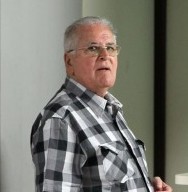
Elizardo Sanchez
So the tax payers will be funding Obama’s afternoons in Cuba at a baseball match between the Tampa Bay Rays and the Cuban national team alongside Cuban president, Raul Castro – the man who has ordered the mass arrest and imprisonment of Cubans for speaking out against the tyranny of Communism. He is the same man who permitted the Communist sympathizers from the Pensacola Yacht Club to enter Cuban waters last fall.
Dissident Ms. Soler, who would be welcomed into the TEA Party movement, also refused to meet up with U.S. Secretary of State John Kerry when the embassy in Havana was reopened in August of last year, after he failed to invite dissidents to the official opening ceremony.
Now remember Senator Marco Rubio helped confirm as Secretary of State John Kerry.
So, while the rest of us prepare our income taxes to fund Obama’s trip to Cuba, Elizardo Sanchez, Cuba’s most famous human rights activist, was arrested at Havana airport, on arriving from Miami.
So you see Communists in Cuba much like the BLM in this nation are evil. Group hugs from the Obama White House.
And as a reminder the women in Ms. Bertha Soker’s freedom group were also regularly arrested and beaten up during protests and harassed by police. Her words to me online.
She also accused the Cuban government of beginning a new policy of taking money from their bank accounts, justifying the “robbery” by saying the money had been sent from the U.S. to encourage revolt. Obama also goes into our bank accounts here in the USA without due process violating your 4th Amendment Rights at anytime Obama uses the IRS as his personal political weapon of choice….. no difference…. Communism at work… control of the people.
Now as I write this the freedom fighter dissidents in Cuba are saying “At this very moment, outside our offices, there are three groups of police stationed there,”
Ms Soler, 52, who began her activism when her husband was sentenced to 20 years in prison for founding an alternative political party, insisted the human rights situation in Cuba was actually getting worse. She said there were currently over 80 political prisoners being held, and that Mr Obama should use his visit to call for an amnesty. “He must demand their release,” she said. “It needs to be about more than smiling and shaking hands.”
Cuba’s Communist government has said it has no political prisoners, and that opponents mistakenly consider armed counter-revolutionaries and common criminals as political cases.
This sounds familiar right? Except in the United States counter-revolutionaries are TEA Party patriots, ranchers in Nevada and Oregon and Americans with Gadsden flags or Northern Virginia Battle in their front yards, banned by Pensacola Mayor Ashton Hayward, who is now running for the U.S. Congress Florida’s District 1
Back to Cuba, Ms Soler’s complaint – taken up with gusto by Mr Obama’s Republican opponents – was echoed by Armando Valladares, a former political prisoner now based in Miami. “This visit is an enormous slap in the face to us, and a backing for tyranny,” he said.
Even Cubans that want freedom are against this visit by Obama but you have to understand President Obama is a Communist sympathizer at heart and he doesn’t care what we or the freedom fighters in Cuba think.
Lets talk about brave patriot Mr. Valladares, age 78. He spent 22 years of his life in a Cuban prison for wanting to be a free man– he also ridiculed the notion that an increase in tourism would enhance Cuban democracy. “It’s incredibly pretentious of the U.S. to think that when the tourists invade the streets, suddenly Cubans’ eyes will be opened and with a magic wand they will be awakened,” he said today.
This my friends is the real story in Cuba.
It will not be printed in the Obama controlled media in the United States. It will be glossed over. President Obama’s trip will be portrayed as a huge political victory for the Communist government of Cuba and the government of the United States. This story will not make the Pensacola News Journal or the any other Florida media outlets.
Cubans are still starving for freedom and continue to rot in Cuban gulags, they continue to be arrested for speaking their mind and continue to live in a state of fear in Socialist/Marxist created poverty.
Our southern borders remain wide open and the Communist backed members of left wing groups who are in this nation illegally even from Cuba are still sucking off the tax payer titty and why even today they blocked roads in Arizona. They tried to shut down the first Amendment Rights of presidential candidate Mr. Donald Trump.
This is how Communists operate ladies and gentleman. Attack, censor, interfere and disrupt (ACID). I am sure Mr. Trump just added another 20 feet to the wall that he promised build to protect the sovereignty of this nation.
Communism is the forefront ideology of Bernie Sanders, Barack Hussein Obama and Hillary Clinton and many in our congress all of it paid for by the American tax payer.
Mr. Trump is the hammer about to come down on top of their sickle. Their days of inflecting tyranny on the U.S. are numbered. Their giving aid and comfort by supporting Communist governments abroad are swiftly coming to a close.
Cuba Libre!

President Barack Obama (2nd L), First Lady Michelle Obama (L) and daughters Malia (2nd R) and Sasha (R) disembark from Air Force One at the Jose Marti International Airport in Havana on March 20, 2016. AFP PHOTO/Nicholas KAMM / AFP / NICHOLAS KAMM
UPDATE: Foreign Policy reports:
And on Tuesday, Obama will meet with dissidents, including Berta Soler, the leader of the Ladies in White, an opposition group made up of the wives of political prisoners.
But just hours before Obama’s arrival, Cuban police arrested dozens of protesters at a Ladies in White event in Havana. The arrests may open the president up to more attacks from members of the U.S. Congress who oppose his engagement with the Castro regime.
Many Cubans remain skeptical that Obama’s diplomatic outreach will influence the government for the better.
“Everyone wants to know how we Cubans feel about Obama coming,” said Yamile Suárez, 36, standing near a recently repaved road in Havana. “I’m frankly just happy that giant pothole finally got filled in, so if I have him to thank for it, thanks, Obama!”
RELATED ARTICLES:
Lawsuit reveals that Iran and Hezbollah aided the September 11, 2001 terrorists
Castro ordering its dissidents to skip meeting with Obama
Florida: Pensacola Yacht Club Embraces former Cuban Communist Naval Officer
Pensacola, Florida: ‘The City Of Five Flags’ Censores One of Its Flags





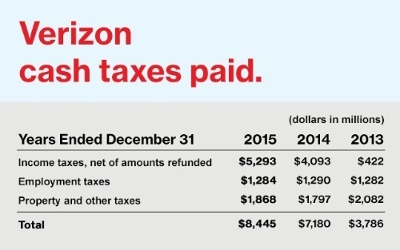 The reality is that Verizon complies with all tax laws and pays the taxes it owes under the law. Last year, the company paid a total of
The reality is that Verizon complies with all tax laws and pays the taxes it owes under the law. Last year, the company paid a total of 


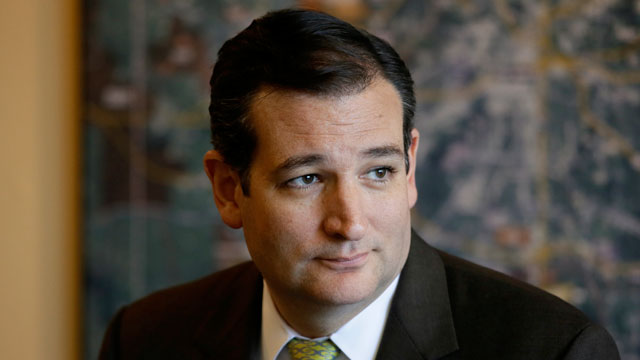

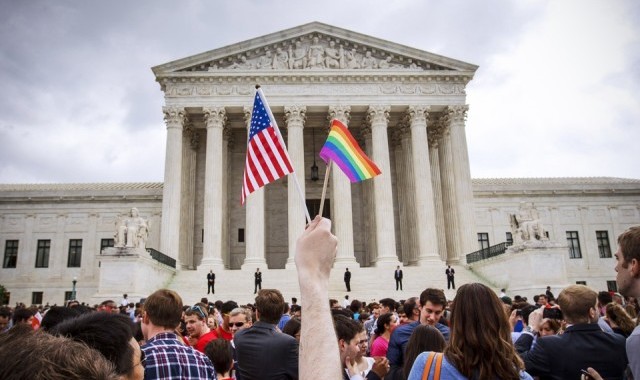


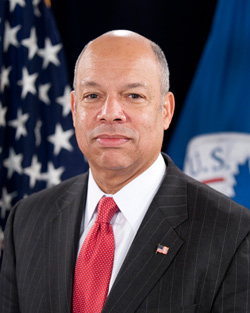

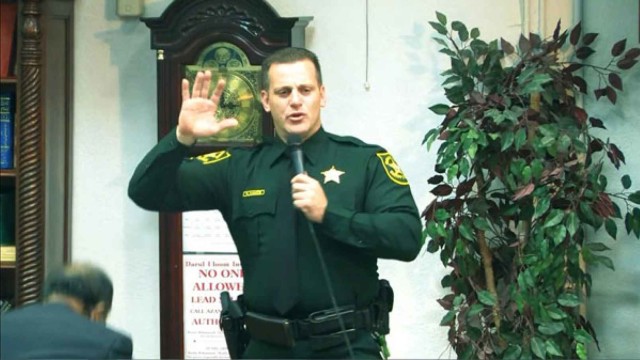


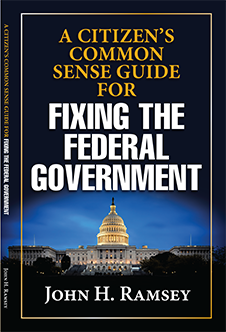 John H. Ramsey has published “
John H. Ramsey has published “